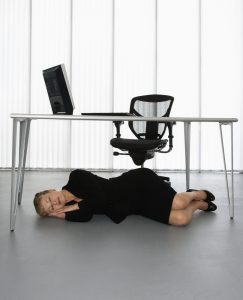FREE delivery for Orders above Rs 500. No delivery on Sundays.
In our high-risk, high-reward economy, there’s a healthy pressure to do more with less. It makes sense with time and money. But it’s a productivity killer when it comes to sleep. As a society we put a high value on achievement but not much on rest.
I hear people brag about how much they work and play but never how much they sleep. But what if sleep could help you achieve more?
We act like sleep is a luxury or an indulgence; as a result, sacrificing sleep in the name of productivity has become routine.Cheating our sleep is like maxing our line of credit. There’s a benefit now—at least, it feels like it—but the bill always comes due in the form of decreased health and mental ability not to forget weight gain. What if you were able to take a short nap for a maximum of 30 minutes during the day!! Still cant afford it ?
A nice afternoon nap will also help to lower stress levels,Sleep deprivation leads to an excess of the hormone cortisol in the body. Cortisol, known as the stress hormone, helps us deal with fight or flight responses. But excess cortisol increases glucose intolerance and abdominal fat, weakens the muscular and immune systems, stymies memory and learning, and decreases levels of growth hormone and testosterone in our bodies. These deleterious effects can lead to diabetes and heart disease.
Lets probe on a few benefits of Napping during the day !!
-
A nap keeps us sharp. How many times have you gone blank in a meeting, nodded at your desk, or forgot where you were going? I admit it’s happened to me. Skimping on sleep—even a little—can dramatically impair our mental performance, creating fatigue, inability to focus, slow reaction times, and more.
-
A nap prevents burnout. In our always-on culture, we go, go, go. However, we were not meant to race without rest. Doing so leads to stress, frustration, and burnout. Taking a nap is like a system reboot. It relieves stress and gives you a fresh start.
-
A nap heightens sensory perception. Our minds are particularly active when we sleep, integrating new information learned during the day, processing memories, and sorting the significant from all the meaningless stuff we pick up. Even dreaming is critical to this process. .
-
It reduces the risk of heart disease.
-
A nap makes you more productive. Numerous medical studies have shown workers becoming increasingly unproductive as the day wears on. But a 2002 Harvard University study demonstrated a 30-minute nap boosted the performance of workers, returning their productivity to beginning-of-the-day levels.
-
Napping refreshes our emotional state. Nothing can make us feel depressed, moody, and irritable and guess what sleep restores that.
-
A nap in the afternoon,revitalizes our bodies. We all have a body clock. When we ignore its signals to play longer or work more, we create unnecessary stress, and that stress contributes to depression, fatigue, weight gain, high blood pressure, and a lot worse.
-
short nap during the day lowers the stress chemicals in our bodies, boosts our immune system, and improves our bodies’ metabolism. Instead of putting in extra hours on a project, nap for a brief period be productive and feel better about it.
-
Instead spending money a week on energy drinks or coffee, take a nap and boost your energy the natural and more effective way.
How Sleep/Napping affects works:
The neurotransmitter serotonin regulates our mood, sleep, and appetites. It produces feeling of contentment and well-being. But when our bodies are stressed, higher levels of serotonin are used and the production of more is blocked. As a result, we can become anxious, irritable, depressed, overwhelmed, and easily distracted. When you don’t get enough sleep, it drives leptin levels down, which means you don’t feel as satisfied after you eat. Lack of sleep also causes ghrelin levels to rise, which means your appetite is stimulated, so you want more food,” The two combined, will set the stage for overeating, which in turn will lead to weight gain. When you sleep, you release growth hormone, the antidote to cortisol which which boosts your immune system, primes your sexual function, reduces stress and anxiety, and aids in muscle repair and weight loss. Napping gives your brain a chance to rest and your body a chance to heal.
Napping Tips
-
I typically take a 20-minute right after lunch. Try to squeeze it in before 4:00 p.m.
-
Be consistent. Try to nap at the same time every day. This helps stabilize your circadian rhythms and maximize the benefits.
-
Keep it short. Avoid “sleep inertia,” that feeling of grogginess and disorientation that can come from awakening from a deep sleep. Long naps can also negatively impact nighttime sleep. I recommend 20–30 minutes. Set an alarm on your phone to avoid oversleeping.
-
Be discreet. Getting caught napping at your desk is not a good way to earn respect. In some old-school environments, it might even get you fired! But most people get an hour for lunch. Eat in half that time and then go snooze in your car, an unused conference room, or even a closed cabin.
-
Finally, shift your own thinking about naps. People who take them are not lazy. They might just be the smartest, most productive people you know.
TRIVIA
-
Winston Churchill first coined the term “power nap”, claiming that a daily afternoon sleep brought him the clarity of thinking he needed for wartime victory.
Churchill’s siestas, usually followed by a bath, were credited with giving him the stamina to work through the night until 4am during the Second World War. -
Winston Churchill, John F. Kennedy, Ronald Reagan, Napoleon, Albert Einstein, Thomas Edison and George W. Bush are known to have valued an afternoon nap.
-
Margaret Thatcher famously ordered her aides not to disturb her between 2.30 and 3.30pm, so she could snooze;
-
Bill Clinton did the same each day at 3pm.
-
A short nap is usually recommended (20-30 minutes) for short-term alertness. This type of nap provides significant benefit for improved alertness and performance without leaving you feeling groggy or interfering with nighttime sleep.
-
The ancient Romans were biphasic sleepers; at sexta (the sixth hour or their noon) everyone would turn in for some midday shut eye.
More than 85% of mammalian species are polyphasic sleepers, meaning that they sleep for short periods throughout the day. Humans are part of the minority of monophasic sleepers, meaning that our days are divided into two distinct periods, one for sleep and one for wakefulness. There’s nothing wrong with doing more with less, but if we’re not smart about it, we can really hurt our productivity and even our health.
Bottom line: Instead of thinking of sleep as self-indulgence, we need to think of it as self-improvement.
Bewell,
Vivek
